Browse
Agri Food Systems
No Preview Available
Call for Papers: Livestock as Global and Imperial Commodities
Livestock as Global and Imperial Commodities: Economies, Ecologies and Knowledge Regimes, c. 1500 – present
Annual Commodities of Empire International Workshop, Freie Universität Berlin, 14-15 July 2022
Livestock has played a crucial role in imperial politics, economies and societies over the past centuries. The expansion of animal raising often went hand in hand with settler colonialist land expropriation, and various animals were in many places crucial to colonial conquest and exploitation. Moreover, livestock and livestock commodities, such as meat, wool, hides and tallow were traded and consumed within and across boundaries, both imperial and non-imperial. Such commodification processes not only relied on settler livestock frontiers, but also on the transformation of indigenous livestock economies, knowledge regimes and local ecologies. They were closely tied to the global expansion of capitalism and, as such, also affected non-colonial and post-imperial spaces across the world in many similar, yet sometimes also diverging ways. However, compared to agricultural cash crops and minerals, imperial and global histories of livestock are still quite rare. This workshop addresses this important research gap. It aims to explore the different (political, economic, societal, cultural, religious, ecological and scientific) dimensions of livestock production and commodification in global and imperial history.
We broadly define livestock as domesticated animals that are raised for multiple purposes, most notably for their labour (draft, pack, riding and powering machinery); their skin, hair, horns, shells, feathers, etc. (for clothing or ornaments); their meat, milk and eggs (for nutritional purposes); their manure (as fertilizer or fuel); their body parts (for medicinal purposes); their monetary value (for barter, savings and marriage payments); or their symbolic value (for religious uses, punishments and displays of prestige). Our definition includes cattle, water buffaloes, yaks, reindeer, sheep, goats, pigs, camels, elephants, horses, mules, donkeys, llamas, alpacas, poultry and ostriches, and we would also welcome papers on (shell)fish farming. Yet, we would exclude wild animals that are hunted, exhibited and/or subjected to conservationist measures. These will be addressed in a second workshop in 2023.
Potential paper topics may relate to:
· the politics of livestock production: colonial control over land and/or pastoralist societies, local/imperial food security, capitalist expansion, international organisations such as FAO, etc.
· modes of livestock raising: nomadic, semi-nomadic and settled pastoralism and mixed farming, large-scale ranching, industrial animal farming, ownership by international corporations, etc.
· social conditions and effects of livestock production: social stratification, gender, race, caste, religious, and ethnic roles, changing labour forms and relations, (legal) regimes of land and livestock ownership, etc.
· environmental consequences: deforestation, formation of grasslands, soil erosion, (water) pollution, global warming through methane emissions, etc.
· veterinary, agricultural and environmental knowledge and technologies: (non-)circulation of knowledge, conflicting knowledge regimes and actors, scientific institutions and practices such as experimental stations, cross-breeding and selective breeding techniques, practices of disease control, etc.
· processing of livestock commodities: slaughterhouses, processing of hides, wool and dairy, techniques for dried, salted, canned, frozen and chilled meat, etc.
· trading infrastructures and networks: transport technologies, ports, trade companies, credit mechanisms, etc.
· livestock labour: transport, warfare, role in agriculture, forestry and mining for the production of other (global) commodities such as sugar, teak or silver, etc.
· local, imperial and global uses of livestock commodities: for food, clothing, fertilizer, medicine, payments, etc.
We are interested in cases from all geographical regions and in approaches from various disciplines. In addition to historians, we welcome papers from anthropologists, sociologists, veterinary scientists, zoologists, environmentalists and other scholars working on the global and imperial history of livestock and livestock commodities.
This two-day workshop is a collaborative venture between the Commodities of Empire British Academy Research Project and the Commodifying Cattle Research Project funded by the German Research Foundation at the Free University Berlin. Following the long-standing practice of Commodities of Empire workshops, papers will be grouped in thematic panels, pre-circulated to all workshop participants, and panel discussions will be opened by a chair or discussant. Paper-givers will then have the possibility to reply succinctly, and this will be followed by open discussion. Papers presented at the workshop may be considered for publication in the Commodities of Empire Working Papers series: https://commoditiesofempire.org.uk/publications/working-papers/. We strongly encourage graduate students and other early career scholars to propose papers.
Costs of accommodation in and, within certain limits, travel to Berlin will be covered. We have special funding for scholars coming from the Global South. Please note, however, that while we aim to hold the workshop on site at the Free University Berlin, we might have to hold the workshop virtually, or in a hybrid form, depending on the evolution of the Covid-19 pandemic and the (travel) restrictions it entails.
Please e-mail expressions of interest, with a title and an abstract of no more than 300 words, by 31 January 2022 to Samuël Coghe, Free University Berlin, samuel.coghe@fu-berlin.de. We will notify authors about the acceptance of their papers by 15 March 2022. They will then be asked to submit a draft paper of approx. 5,000-6,000 words (not counting footnotes and bibliography) 3 weeks prior to the event.
Read more

By: Raquel Acosta
Due Date: Jan, 31, 2022
Agri-food systems
+1
Leave a comment

Conservation, Food, & Health Foundation Grant
The Conservation, Food and Health Foundation seeks to protect natural resources, improve the production and distribution of food, and promote public health in Asia, Africa, Latin America, and the Middle East. The foundation helps build the capacity of organizations and coalitions with grants that support research or improve the learning and generation of local solutions to complex problems.
The foundation supports projects that demonstrate local leadership and promote professional development in the conservation, agricultural, and health sciences; develop the capacity of local organizations; and address a particular problem or question in the field. It prefers to support projects that address under-funded issues and geographic areas.
The foundation supports special projects and programs of non-governmental organizations in three areas: conservation, food, and health. Examples of areas of interest within these fields follow, but are not meant to be exclusive.
Conservation
Conservation grants help improve ecological and environmental conditions in low- and middle-income countries. The foundation supports field research and related research activities, training, and technical assistance efforts that:
help conserve ecosystems and protect biodiversity
train local leaders in conservation and protection of resources, with an emphasis on technical and scientific training
Food
Food grants help research-based efforts to improve food and nutrition security and improve natural resources and ecosystems. Areas of interest include projects that:
promote or develop specific sustainable agriculture practices with potential to advance science and practice in other countries;
test and refine innovative education and training interventions for small scale farmers; and
advance new approaches to control pests and diseases affecting important food crops in low-income countries.
Health
The foundation supports public health programs that focus on populations rather than individuals. It funds programs that emphasize disease prevention and health promotion over those that emphasize disease diagnosis, treatment, and care. It supports research, technical assistance, and training projects that:
improve public health through community-based efforts that address health promotion, disease prevention, family planning, and reproductive health; and
increase the understanding and treatment of neglected tropical diseases
The foundation supports most types of non-governmental organizations that can provide evidence of their nongovernmental status or charitable purpose.
In general, the foundation will support:
Non-governmental organizations (NGO)
Nonprofit organizations
Civil society organizations
Community-based organizations
Colleges, universities and academic institutions
The foundation does not support businesses, government agencies, humanitarian aid organizations, other foundations or churches.
For more information or to apply isit the CFH Foundation website.
Read more
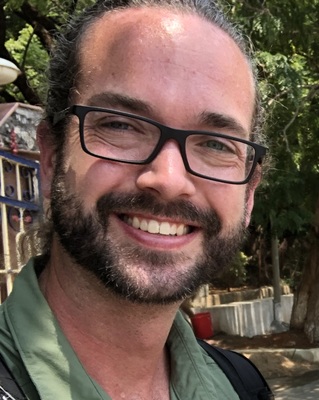
By: Derek Tobias
Due Date: Jan, 1, 2022
Agri-food systems
+2
Leave a comment
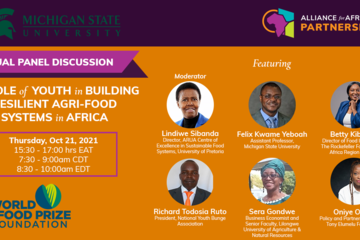
Virtual Panel Discussion
AP is excited to be hosting a virtual panel discussion regarding “The Role of Youth in Building Resilient Agri-Food Systems in Africa” this Thursday, October 21st at 8:30am-10:00 EDT. This discussion will be hosted with the help of The World Food Prize Foundation. The session will discuss evidence-based and pragmatic approaches that could foster productive youth engagements supportive of resilient agri-food systems in Africa. A panel of experts drawn from MSU and AAP partner institutions, Foundations and youth leaders will share insights highlighting the relevance of the agri-food system to youth livelihoods, the role youth could play to foster a resilient agri-food system, and salient trends, barriers and promising entry points for policy that could equip African youth with the skills, space and resources to effectively contribute to a productive and resilient agri-food system. Building a sustained and resilient agri-food system in Africa is an intergenerational mandate which demands the active engagement of African youth, and AAP is proud to be a part of this progress.
This side event is organized by Michigan State University’s Alliance for African Partnership under the auspices of the African Youth Transformation Platform, a collaborative and cross-disciplinary platform that seeks to transform the lives of African youth and their communities through research, capacity building, and advocacy that enhances youth development outcomes.
To register/learn more: https://msu.zoom.us/.../register/WN_iguFgRtBTYyhZi8hiZaCmA
Read more

By: Raquel Acosta
Due Date: Oct, 21, 2021
Agri-food systems
+1
Leave a comment
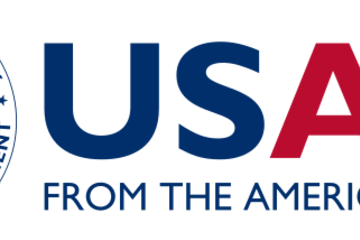
USAID Feed The Future (FTF): Promoting Innovative and Resilient Agriculture Market Systems (PREMIER)
USAID Feed The Future (FTF): Promoting Innovative and Resilient Agriculture Market Systems (PREMIER) program, a project to stimulate systemic change by addressing the root causes of poor agriculture system performance, targeting leverage points for catalytic change and working through market actors to facilitate technical and financial assistance to broaden and deepen market engagement, thus increasing incomes and creating employment opportunities, especially for youth and women.
This project will support producers and SMEs in agriculture to increase their profitability, access to markets and financial services using a market systems development approach, while increasing their resilience to climate change along the Nacala Corridor, which is located across Nampula Province in northern Mozambique, and stretches into northern Zambezia, southern Niassa, and southwestern Cabo Delgado provinces.
For more information or to apply visit the grants.gov website.
Read more

By: Derek Tobias
Due Date: Nov, 22, 2021
Agri-food systems
Leave a comment
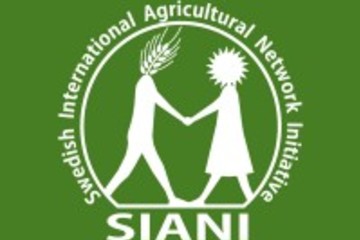
Agri4D 2021 conference "Food Systems for New Realities"
The Agri4D 2021 conference "Food Systems for New Realities" will take place at SLU (virtually) on 28-30 September. The Agri4D conference has been Organised by SLU Global at the Swedish University of Agricultural Sciences (SLU) and the Swedish International Agriculture Network Initiative (SIANI), with support from the Swedish International Development Cooperation Agency (Sida). Agri4D will bring together researchers, policy makers and practitioners to engage actively with the challenges of food systems with a focus on low-income contexts in a globalised world. The conference aims to be a platform to take stock of the current knowledge frontier, connect science to policymaking and practice, and spark new collaborations.
For more information please visit: https://www.slu.se/en/collaboration/international/slu-global/agri4d-conference/.
To register:
Agri4D - Agricultural Research for Development Conference 2021 (akademikonferens.se)
Read more

By: Raquel Acosta
Due Date: Sep, 28, 2021
Agri-food systems
Leave a comment
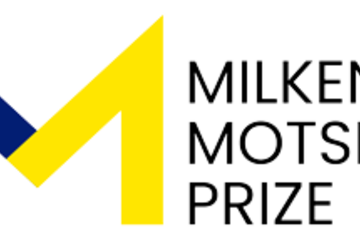
The Milken-Motsepe Prize in AgriTech
The inaugural Milken-Motsepe Prize focuses on accelerating progress towards Sustainable Development Goals (SDGs) 1 and 2: no poverty and zero hunger. The Milken-Motsepe Prize in AgriTech is a global competition for innovative solutions to increase economic value to farmers, from seed to sale. Registration is open to anyone.Winning teams will increase net economic value to small and medium-sized farms by:
Developing innovative technology solutions for any stage of the food system, from seed to sale
Designing a viable business model
Increasing farm productivity and/or decreasing post-harvest loss
Registration is free and open to anyone, with a $1 million grand prize available for the winning team, and $1 million in additional prizes.
For more information or to apply, please visit the Milken-Motsepe Prize webpage.
Read more

By: Derek Tobias
Due Date: Dec, 8, 2021
Agri-food systems
Leave a comment
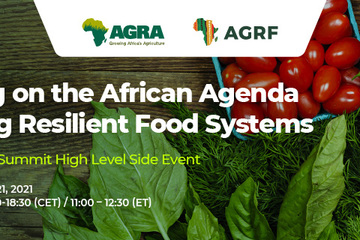
UN Food Systems Summit High Level Side Event Delivering on the African Agenda in Building Resilient
During the 2021 AGRF Summit 6-10 September, six African presidents joined by 8,000 delegates aligned with the African common position on building resilient food systems. Their shared vision will help achieve a transformation to improve livelihoods, defeat hunger and tackle malnutrition.
To highlight the national pathways and partner actions, on September 21 from 6–7:30 PM (EAT) AGRA and the AGRF will host “Delivering on the African Agenda in Building Resilient Food Systems” a side event ahead of the UN Food Systems Summit. It will address African challenges and solutions in the transition to resilient food systems. Following the declaration (https://agrf.org/summit#summit-declaration) of the AGRF, it will consider what must be done to turn political ambition into reality.
The event will be moderated by William Asiko, Managing Director of the Rockefeller Foundation’s Africa Region Office.
Provisional speakers include:
H.E. Hailemariam Dessalegn, Former Prime Minister of Ethiopia, Chair AGRF Partners Group and Chair AGRA Board
Jim Barnhart, Assistant to the Administrator, Bureau for Resilience and Food Security, USAID
Ms. Evangelista Chekera, CEO Passion Poultry
Hon. Peter Munya, Cabinet Secretary, Ministry of Agriculture, Livestock, Fisheries and Cooperatives, Republic of Kenya
Elizabeth Nsimadala, President, Pan-Africa Farmers Organization (PAFO)
H.E. Ken Ofori-Atta, Minister for Finance and Economic Planning, Republic of Ghana
H.E. Josefa Sacko, Commissioner Agriculture, Rural Development, Blue Economy and Sustainable Environment, African Union Commission
Jai Shroff, UPL Limited CEO
Rodger Voorhies, President, Global Growth and Opportunity Division, Bill and Melinda Gates Foundation
Please join us on September 21 at 6pm EAT (Nairobi time).
Click here to register for the event.
Read more

By: Derek Tobias
Due Date: Sep, 21, 2021
Agri-food systems
Leave a comment
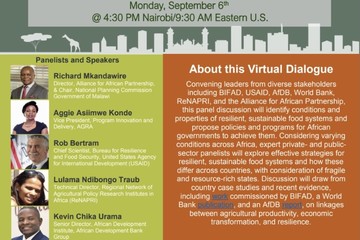
AGRF 2021 Summit: Agricultural Transformation for Sustainable and Resilient Food Systems
AAP is excited to announce the “Agricultural Transformation for Sustainable and Resilient Food Systems” session at The AGRF Pre-Summit event on Monday, September 6th. AGRF and its partners organized a three-day summit, September 7-10 around the theme of “Pathways to Recovery and Resilient Food Systems,” and this will be just one of the many important discussions occurring. The AGRF 2021 Summit is a defining moment in highlighting and unlocking the policy, and financial commitments and innovations the continent has made and that it continues to work towards achieving. AAP recognizes the importance of these sustainable development goals and is looking forward to the participation of our colleagues throughout the Summit.
Register for this year’s summit: https://agrf.org/
Read more

By: Raquel Acosta
Due Date: Sep, 6, 2021
Agri-food systems
Leave a comment
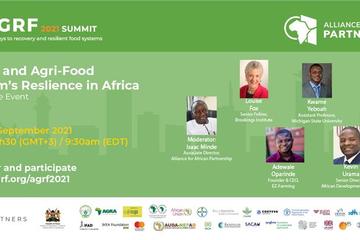
AGRF 2021 Summit
AAP Africa Office Associate Director, Isaac Minde, will be moderating the “Youth and Agri-food System’s Resilience in Africa” session at The AGRF Summit Pre-Day event on Sept. 6th. AGRF and its partners organized a three-day summit, September 7-10 around the theme of “Pathways to Recovery and Resilient Food Systems”. The AGRF 2021 Summit is a defining moment in highlighting and unlocking the policy, and financial commitments and innovations the continent has made and that it continues to work towards achieving. AAP recognizes the importance of these sustainable development goals and is looking forward to the participation of our colleagues throughout the Summit.
Register for this year’s summit: https://bit.ly/3xVWZp2
Read more

By: Raquel Acosta
Due Date: Sep, 6, 2021
Agri-food systems
+1
Leave a comment

Discretionary Funding Initiative (DFI)
The Discretionary Funding Initiative (DFI), funded by the Michigan State University Foundation, provides bridge funds for tenure stream faculty for additional studies needed for resubmission of an unsuccessful, but nearly fundable, grant application to the same program within a funding agency.
To request funding from this program, faculty should submit a proposal via the grant proposal system. Applicants will be expected to provide copies of their previous external reviews, if applicable, and describe the work that will be completed to address the comments provided in those documents. The research associate dean of the applicant's college (lead college if appointed in multiple colleges) will review applications, and submit a prioritized list to the Office for Research and Innovation (OR&I). Requests for support approved by the research associate deans will be reviewed by the OR&I.
The maximum award from OR&I will be $25K and will require a 100% (up to $25K) match from units or colleges. Funds will be available for 18 months.
For more information or to apply, click here.
Read more

By: Derek Tobias
Due Date: Sep, 9, 2021
Agri-food systems
+5
Leave a comment
No Preview Available
South-North Programme for Exchanges and Collaborations
The UNTBLDC-TWAS-ICGEB South-North Programme for Exchanges and Collaborations provides scientists from LDCs who hold a MSc, preferably a PhD, and who are maximum 45 years old, with the opportunity to pay a visit to ICGEB laboratories in Trieste, Italy, for the duration of 6 months maximum. The aim of the visit is to provide the opportunity to become acquainted with the scientific process, including how to develop a research project and take it to a successful conclusion and how to teach, train and transfer knowledge to younger students and researchers. Moreover, scientists will be exposed to an international scientific environment which will be an asset in the progression of their careers and will also positively impact their institution of origin.
The United Nations Technology Bank for Least Developed Countries, through TWAS, will cover travel expenses and provide subsistence costs for the stay in Italy, while the International Centre for Genetic Engineering and Biotechnology, as host institution, will provide the laboratory facilities and the research support.
The administration and financial operation of TWAS is undertaken by UNESCO in accordance with an agreement signed by the two organizations.
Eligibility
Applicants must be a maximum age of 45 years on 31 December of the application year;
Applicants must have a MSc, preferably a PhD;
Applicants must be living and working in a Least Developed Country (LDC);
Women scientists are especially encouraged to apply;
Proposals need to be on projects relevant to ICGEB Trieste:
Non communicable diseases (cardiovascular disorders; cancer; immunology; neurodegeneration; genetic disease);
Human viral diseases (dengue, chikungunya, zika, tick-borne encephalitis viruses, Covid19);
Biotherapeutics and Biosimilars;
Plant biotechnology and microbiome studies;
Computational Biology.
Submitting your application
Applicants must complete the online application form by clicking on the 'Apply now' button at the bottom of this page. While filling in the online application, applicants also need to upload the following documentation:
scanned copy of your passport, even if expired (page with your name and surname);
CV, maximum two pages including a list of your 6 best publications;
A recent invitation letter from the ICGEB host Professor – on the host institution’s letterhead paper – which should contain the proposed time of the visit (up to 6 months) and should refer to the proposed cooperation. It should be made evident that the applicant and the proposed host have been in contact regarding the scientific work to be done during the visit and that the conditions for conducting the work have been agreed in terms of the timing of the visit and the facilities available.
two reference letters from senior scientists familiar with your work. The letters need to be on headed paper and signed;
copy of your MSc certificate;
evidence of proficiency in English;
supporting statement from the Head/Director of the applicant's home institute: it must confirm that the Head/Director is favourable to the application and that the applicant will be granted leave to take up the cooperation visit in Italy if awarded.
Timescale and recommendations for applicants
It is strongly recommended that you start the process well in advance as the following stages are required:
study the host institution website to consider research areas and possible host supervisor;
get in touch with potential host supervisor to introduce yourself and discuss research plan for a possible visit;
should there be an agreement, obtain acceptance letter from potential host supervisor;
register on the online platform, fill in the form and upload all documentation to submit your application.
Other information
The UNTBLDC-TWAS-ICGEB South-North Programme does not include provisions for accompanying family members.
Applications for part-time visits will be considered ineligible.
Successful applicants must not take up other assignments during the period of their visits.
TWAS shall be entitled to a repayment of all or part of any funds paid to an applicant hereunder, in the event that the applicant intentionally or negligently fails to fulfil any or all of the above conditions. The applicant agrees to pay any reasonable legal and/or collection costs incurred by TWAS to obtain the repayment.
Please be advised that applicants may apply for only one programme per calendar year in the TWAS and OWSD portfolio. Applicants will not be eligible to visit another institution in that year under the TWAS Visiting Professor programmes. One exception: the head of an institution who invites an external scholar to share his/her expertise under the TWAS Visiting Professor programmes may still apply for another programme.
Contact email:
exchanges@twas.org
Read more
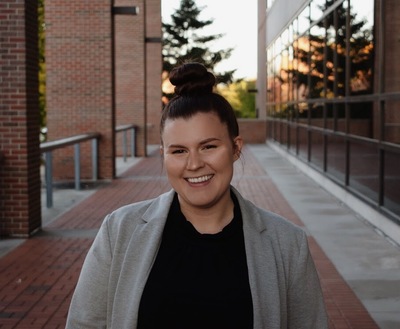
By: Madeleine Futter
Due Date: Aug, 31, 2021
Agri-food systems
+1
Leave a comment
No Preview Available
South-South Programme for Exchanges and Collaborations
The UNTBLDC-TWAS-ICGEB South-South Programme for Exchanges and Collaborations provides scientists from LDCs who hold a MSc, preferably a PhD, and who are maximum 45 years old, with the opprtunity to pay a visit to either the ICGEB Cape Town, South Africa or the ICGEB New Delhi, India for the duration of 6 months maximum. The aim of the visit is to provide the opportunity to become acquainted with the scientific process, including how to develop a research project and take it to a successful conclusion and how to teach, train and transfer knowledge to younger students and researchers. Moreover, scientists will be exposed to an international scientific environment which will be an asset in the progression of their careers and will also positively impact their institution of origin.
The United Nations Technology Bank for Least Developed Countries, through TWAS, will cover travel expenses and provide subsistence costs for the stay at the host institution, while the International Centre for Genetic Engineering and Biotechnology, as host institution, will provide the laboratory facilities and the research support.
The administration and financial operation of TWAS is undertaken by UNESCO in accordance with an agreement signed by the two organizations.
Eligibility
Applicants must be a maximum age of 45 years on 31 December of the application year;
Applicants must have a MSc, preferably a PhD;
Applicants must be living and working in a Least Developed Country (LDC);
Women scientists are especially encouraged to apply;
Proposals need to be on projects relevant to
ICGEB Cape Town:
Parasitic Diseases (tuberculosis, African trypanosomiasis, leishmaniasis and helminthic infections);
Human viral diseases (emerging viruses);
Cancer;
Biopesticides;
Systems Biology
or ICGEB New Delhi:
Agricultural biotechnology (Crop improvement, biotic and abiotic stress resistance);
Human Viral Diseases (dengue, tuberculosis, Covid19 etc.);
Human Parasitic Diseases (Malaria);
Recombinant Diagnostics & Vaccines development;
Cancer;
Biofuels.
Submitting your application
Applicants must complete the online application form by clicking on the 'Apply now' button at the bottom of this page. While filling in the online application, applicants also need to upload the following documentation:
scanned copy of your passport, even if expired (page with your name and surname);
CV, maximum two pages including a list of your 6 best publications;
a recent invitation letter from the ICGEB host Professor – on the host institution’s letterhead paper – which should contain the proposed time of the visit (up to 6 months) and should refer to the proposed cooperation. It should be made evident that the applicant and the proposed host supervisor have been in contact regarding the scientific work to be done during the visit and that the conditions for conducting the work have been agreed in terms of the timing of the visit and the facilities available;
two reference letters from senior scientists familiar with your work. The letters need to be on headed paper and signed;
copy of your MSc certificate;
evidence of proficiency in English;
supporting statement from the Head/Director of the applicant's home institute: it must confirm that the Head/Director is favourable to the application and that the applicant will be granted leave to take up the cooperation visit in South Africa or India if awarded.
Timescale and recommendations for applicants
It is strongly recommended that you start the process well in advance as the following stages are required:
study the host institution website to consider research areas and possible host supervisor;
get in touch with potential host supervisor to introduce yourself and discuss research plan for a possible visit;
should there be an agreement, obtain acceptance letter from potential host supervisor;
register on the online platform, fill in the form and upload all documentation to submit your application.
Other information
The UNTBLDC-TWAS-ICGEB South-South Programme does not include provisions for accompanying family members.
Applications for part-time visits will be considered ineligible.
Successful applicants must not take up other assignments during the period of their visits.
TWAS shall be entitled to a repayment of all or part of any funds paid to an applicant hereunder, in the event that the applicant intentionally or negligently fails to fulfil any or all of the above conditions. The applicant agrees to pay any reasonable legal and/or collection costs incurred by TWAS to obtain the repayment.
Please be advised that applicants may apply for only one programme per calendar year in the TWAS and OWSD portfolio. Applicants will not be eligible to visit another institution in that year under the TWAS Visiting Professorprogrammes. One exception: the head of an institution who invites an external scholar to share his/her expertise under the TWAS Visiting Professor programmes may still apply for another programme.
Contact email:
exchanges@twas.org
Read more

By: Madeleine Futter
Due Date: Aug, 31, 2021
Agri-food systems
+1

Leave a comment